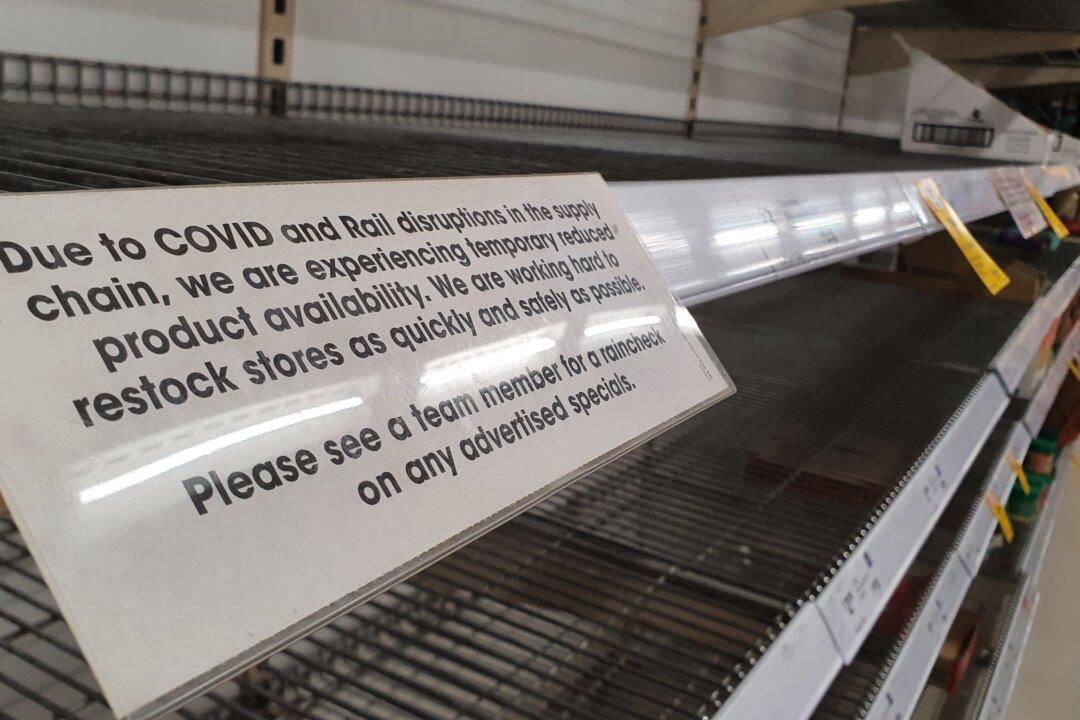Panic buying has forced supermarkets in Western Australia (WA) to reintroduce buying limits, with the state bracing for shortages for a selection of products amid an ongoing supply chain crisis.
Supermarket giants Coles and Woolworths have placed limits on goods normally imported from Australia’s eastern states, including toilet paper, painkillers, rice, pasta, and frozen vegetables.





